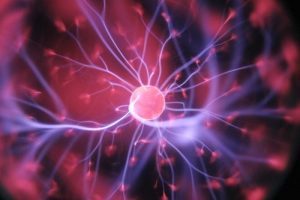Robots as Artists and Inventors

Robots as Inventors and Artists? Artificial Intelligence will impact our lives in many significant ways, but Robots will not be getting Patents or Copyrights anytime soon.
Traditional Intellectual Property relies on the notion that humans are the source of innovation and artwork. What happens when a computerized robot becomes an inventor, an author or an artist? What happens when a human uses a computer with artificial intelligence to develop an invention or work of art? Is the computerized robot, a co-author of a work if it was involved in creating a work with a human? What happens if a computer uses someone else’ intellectual property? Are they liable for infringement?
Artificial Intelligence
While Science Fiction and computer theorists have predicted machine intelligence, or artificial intelligence since the mid 50s, computer awareness and intelligence is now beginning to interact and take shape in most of our daily lives.
Artificial intelligence is referred to as a disruptive technology because it has the potential to dramatically change the way we live our lives. Artificial intelligence is currently changing the way we communicate, the way we work, the way we drive, the way we shop and even the way we sleep.
Artificial intelligence is all around us. When you need driving directions, artificial intelligence comes to the rescue. When you ask your electronic companion about the weather, you are using artificial intelligence. Typing a text message to your best friend uses artificial intelligence. When your email provider filters your email messages, they are using artificial intelligence. Your social media platform uses artificial intelligence to decide what type of content and advertisements to show. Internet searches use artificial intelligence. Both Amazon or Google use artificial intelligence to help you shop.
The market for artificial intelligence is growing and is predicted to grow more than $191 Billion dollars by 2024 and increase productivity output around 16% by 2030. In China, it is expected to increase almost 26%. But what does this mean for us humans who like to create things with our minds?
Artificial Intelligence and Intellectual Property
Some leaders warn that Artificial Intelligence may lead to a reduction in competition, jobs and increased inequality for society. Some leaders suggest that artificial intelligence may lead to rapid innovation but that the innovation generated will have less long term impact. Some claim the human brain is far more complex than binary code, a bunch of 0s and 1s generated by computers. Whatever, your view is, the impact of the intersection of artificial intelligence and intellectual property could change our lives and rights of artists and inventor around the world.
With the ability to classify, predict and automate a wide range of products and tasks, artificial intelligence can dramatically improve existing goods and services along with the manufacture of these goods. Because artificial intelligence involves learning, it also has the potential to alter the way we problem solve and innovate by changing the way we apply the innovation. Stated differently, artificial intelligence not only has countless potential uses, but can also be used to find new uses for the developed artificial intelligence.
One way Intellectual property will impact AI, is by changing the ability and speed of developing and disseminating artificial intelligence. For example, if a patent is awarded for technology related to processing data which leads to “better” artificial intelligence, the technology could be subject to patent rights for up to 20 years. If a certain method or process were treated as a trade secret, then the ability to disseminate that secret process or method would also be restricted. Intellectual property can impact the ability to diffuse the artificial intelligence technology to society in a way which negatively affect its progress or adoption.
Another way Intellectual Property may impact AI, is by controlling data. Some data is covered by various privacy and intellectual property rights. Because artificial intelligence typically requires processing large amounts of data to “learn,” control over the data could also limit or slow the development of artificial intelligence.
Returning to our Robots as artists and inventors, under existing US intellectual property law, inventions and artwork created by non-human robots and monkeys is simply not protected. Previously, the US addressed the issue of non-human authorship and inventorship with monkeys taking photographs and computer systems being used in to generate music and creative works.
Artificial intelligence systems can be used to “create” copyrighted works including music, paintings, books, recipes, and potentially patentable inventions. However, existing Patent and Copyright laws, reject the idea of non-human authorship or inventorship. In addition, because they can’t invent, it would seem logical that they can’t infringe on someone else’ patent or copyright. Therefore, while robots can do almost anything, they won’t be able to own or be sued over a patent or copyright soon.
